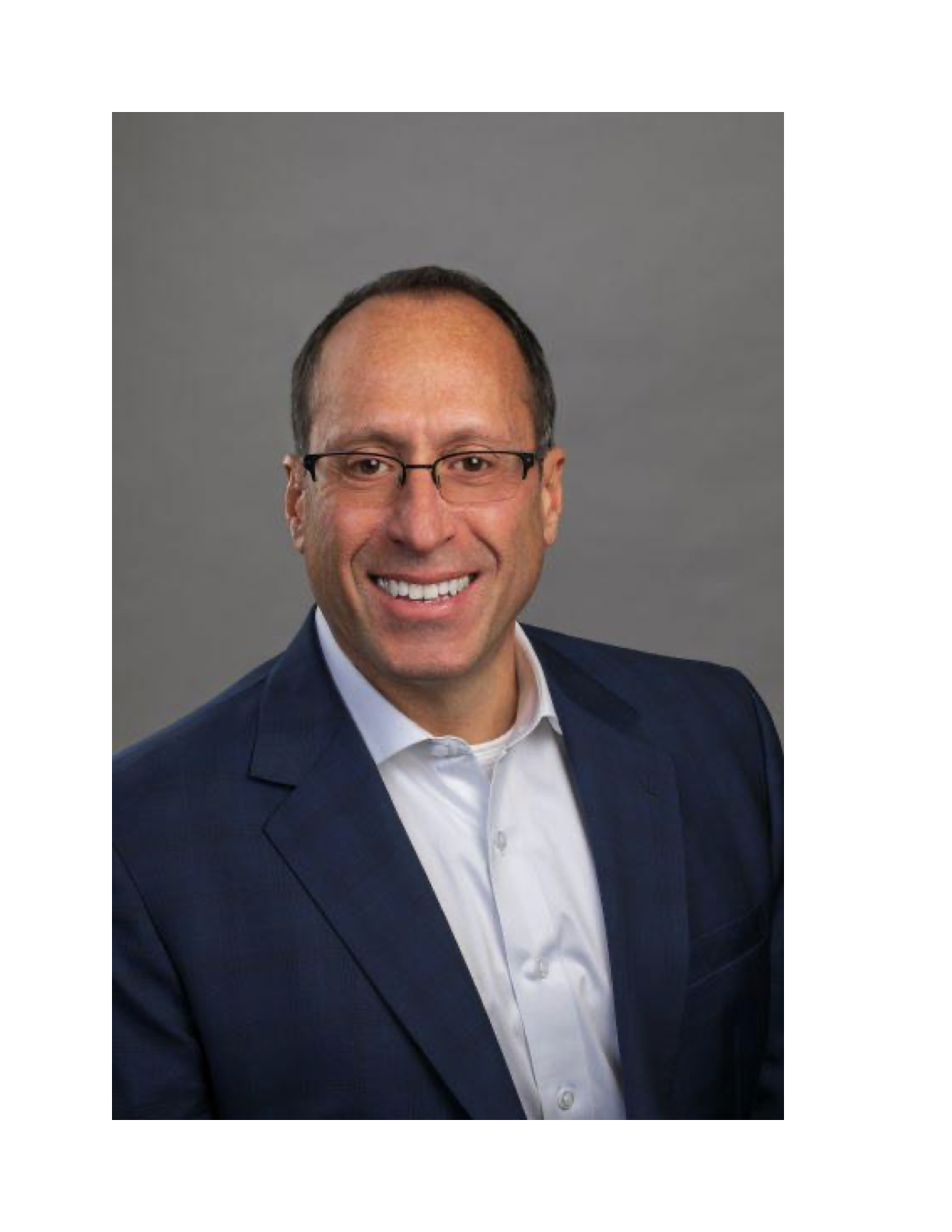Business Exit Planning with Joe LoPresti
Successful business exit planning requires both expertise and teamwork. Joe LoPresti breaks down the process for making it all work!
Listen to us On
About the Episode
We focused on business exit planning, all the variables to consider and plan for, how to ensure you take care of the financial aspects as well as personal, why 80% of business owners regret selling within one year, and how to have a happy and successful exit, with Joe LoPresti, President of Arlington Wealth Management and author.
Listen to hear a difference-making tip on how to know whether or not your business is ready to be sold!
You can learn more about Joe at Arlington-Wealth.com, and LinkedIn.
Get your copy of Exit By Design here:
Did you get anything out of this episode? Do us a solid and leave a review:
https://ratethispodcast.com/alignedmoneyshow
Learn more and engage at MoneyAlignmentAcademy.com, Twitter, LinkedIn, Instagram, YouTube and Facebook.
Buy George G a coffee (he loves coffee)
https://www.buymeacoffee.com/lifeblood
Have George G speak
https://moneyalignmentacademy.com/speaking/
Financial literacy and wellness for individuals, families, and companies
https://moneyalignmentacademy.com/
Find George G’s books here
The Aligned Money Show is the podcast for Money Alignment Academy, copyright 2024.

George Grombacher
Host

Joe LoPresti
Guest
Episode Transcript
george grombacher 0:02
Joe, to get us started, give me two truths and a lie, please, sir,
Joe LoPresti 0:07
two truths and a lie. Okay, well, let’s see. I’m a wine maker. I’m ambidextrous, and I never broke a bone.
george grombacher 0:22
Nice. Those are excellent winemaker who is ambidextrous, who’s never broken a bone. I just tried to write ambidextrous, and I think I failed miserably,
Joe LoPresti 0:36
so I can hardly say it. So,
george grombacher 0:40
all right, wine maker, ambidextrous, never broken a bone. I am going to say that you like drinking wine, but you don’t make it.
Joe LoPresti 0:48
Oh, no, I am a winemaker.
Unknown Speaker 0:49
You got me?
george grombacher 0:54
Which, which, which one is the lie?
Joe LoPresti 0:56
Uh, the lie is, I never broke a bone.
george grombacher 1:00
How many bones have you broken?
Joe LoPresti 1:01
Um, good question. I think I broke two bones. Okay, all right, my wrist and a rib at one time.
Speaker 1 1:09
Okay, nice, same time or different? No, no, no, no, no, different, different times. All right, was more painful.
george grombacher 1:18
Yeah. How’d you get into wine making?
Joe LoPresti 1:23
I actually a family tradition. So you know, my my father did it, my grandfather did it. So I do it now with, you know, my family, my I have three daughters, so they all in when they can, in their various ways, chip in, mostly on the drinking part, than the than the making part, but
george grombacher 1:42
there’s an important role to be filled at every stage of us of wine. And so you say you’re ambidextrous. Is that relate to writing and sports and everything? So
Joe LoPresti 1:54
it’s actually i, i Everything I do, sports wise, swinging, I’m I’m left handed. So baseball, hockey, golf, I throw right handed. I write right handed. I’m right hand dominant. But for whatever reason, I like swinging with, with, from the left side. So I’m not too sure what, but that’s the way, that’s the way I roll.
george grombacher 2:19
That’s all how it shakes out. Excellent. All right. Well, we’re after a good start. What is top of mind for you right now? Joe,
Joe LoPresti 2:30
ah, what’s top of mind? I mean, I could take that on either something that’s a little bit more in the news now, or something that I think is more of a kind of a trend that’s going to be playing out over the next few years. Which one do you think would be a better conversation? Let’s start with the trend. The trend. Okay, so I think the trend that I see developing over the next few years, maybe several years, is a wave of baby boomer business owners that are, you know, one day are going to have to pass the torch on to someone, Whether it’s, you know, someone in the family, selling it, transitioning it to the inside, people that work with them. Now, whatever that succession or transition is, there’s a huge wave of that coming, and I just feel they’re not prepared for it, or planning effectively the way that they that they should to optimize that opportunity in their life. It’s
george grombacher 3:46
not as simple as just handing it, handing the keys to the next generation. Joe,
Joe LoPresti 3:51
you’re not selling a house. You don’t just turn in the keys. Yeah, it’s a bit more complicated than that. George,
Unknown Speaker 3:59
for sure,
george grombacher 4:00
and is there a right way to do it? Probably million wrong ways to do it.
Joe LoPresti 4:10
Well, I don’t know if there’s one right way, but, you know, I would say that you want to be proactive in it. You want to design that exit, you know, as opposed to having the exit just occur in more haphazard like so that’s a lot of what I focus on is, you know, trying to, trying to get business owners, particularly the founding business owners that have been in the business for, usually decades. And, you know, they just don’t like to think about it. It’s their baby. It’s what, you know, they created this, this great business, and they’re very proud of it. They probably never really want to transition it out if they don’t have to, but they know one day they’re going to have to. So, you know, do. Designing a personal action plan is something that I think is really important, where you just start to consider all things related to a succession. You know, who are the potential buyers? What will they look for in your company? You know, who’s the who’s the ideal buyer? In your mind, is it somebody in the family? Is it private equity? Is it a strategic buyer, a competitor, industry consolidator? What? What does all that look like? Will you have a role in the company afterwards? Most times, if you turn in the key and you leave, you’re not going to get as good of a of a sale as if you have some role in the company after you sell, or some transition period. So all those things. How do you want your employees to be treated during the the the transition? What will your life look like? You know, you don’t just go from working, you know, 4050, hours, 60 hours a week. Some of these founders do to, you know, sitting in a rocking chair and sipping gin and tonics. So you know, what’s that going to look like, and really thinking that through. You know, a lot of my business owner clients, after they do sell their business say it takes about two to three years to really feel like they have a normal life again. Because it’s a it’s very psychologically, you know, difficult period for them.
george grombacher 6:27
I start my day at I love sitting in coffee shops and doing a little bit of writing, and invariably, people will chat me up and ask me what I’m doing. And just the other day, a gentleman said, I just sold my business. I’m like, that’s amazing. What are you going to do? He said, I have no idea. And I just thought to myself, oh my goodness, this gentleman had better start thinking about what he’s going to do. Otherwise he’s going to be really unhappy.
Joe LoPresti 6:53
Yeah. So we try to get him thinking about that, you know, well ahead of time, and that helps them shape their their legacy. You probably heard the statistics something like 80 or 85% of business owners regret the sale a year after they sell it, and that’s because they just, you know, they didn’t think it through. They they look back and say, I wish that I would have known about this, or I wish I would have known about that, you know, I jokingly call that the dumb tax, you know, they they didn’t know what they didn’t know. And rather than saying, I wish I would have known about blank, we want them to know about it so they can make an intelligent decision, you know, and and then, and that’s how they shape their legacy. That’s how they they exit on their terms. Because when you get down to the brass tax of the transaction, it’s all about the buyer, right? I mean, they, they’re the buyer. They’re the ones that have to, you know, take what you’ve created and now make it profitable for them, right? And so that transaction part, the negotiation, going through all the due diligence and all that, it’s going to be a lot about the buyer, but it’s that pre sale planning, where you could you design the exit that you want. So that that’s one thing that I see happening, you know, around the country, right?
george grombacher 8:26
That’s really interesting. I don’t know that I had heard that within a year or so, 80 to 85% of people that sold a business have regrets about it. But now that I hear that, it doesn’t surprise me, and that must take so many different forms. Essentially everything you laid out like, maybe they felt like their employees aren’t getting treated as well. Maybe they wish that a son or a daughter or a family member would have taken it over. Maybe they wish that they’d done more work preparing so they could have gotten more money. There’s just, I bet there’s such a huge list of things you can feel regret over.
Joe LoPresti 9:00
Yeah, yeah, yeah, absolutely, that the tax planning part of it is a big one. I often hear where they find out from somebody else who sold their business that worked with an advisor that helped them through a tax mitigation strategy, and they say, Boy, I really wish I’d have known about that. I’d have a lot more money in my pocket. So all those things are, are part of the pre action plan, free personal action planning. So our goal when we, you know, when we’re working with a business owner, is to try to eliminate that dumb tax. And we never want to hear them say, I wish I would have known about blank after the fact,
george grombacher 9:40
I’ve been listening to the new biography of Elon Musk, and whatever you think about Mr. Musk, it what he has done is extraordinary, just with all these different businesses and going through adversity and everything else, and the work that it takes to start a business and to make. It’s successful is it’s it really is an incredible thing. So for an entrepreneur to be doing it, and then to think about selling, that must be so hard, because it’s been so close to you, and it’s been such a, maybe the biggest part of your life, outside of family. And then you think about moving out of it. You don’t want to make a mistake, and you’re so busy, how much of it is just creating some space to be able to think about these things?
Joe LoPresti 10:31
Yeah, it’s, that’s a big part of it, because, you know, business owners are busy, and you know they’re, they’re, they’re Head, head down in the day to day operation, or when it comes into the the exit part, they’re, you know, so focused on that, that transaction, that it’s they just don’t do a lot of the pre sale planning that that’s required. And that’s not just on their the business level. A lot of that flows over into their personal wealth planning, you know, I don’t know that business owner you met at the coffee shop, you know, he hasn’t figured out what he’s going to do with it, with his life. I wonder if he’s figured out what he’s going to do with the money, you know. And a lot of lot of business owners look at it, well, I’ll get this money and then I’ll figure it out later. Well, you miss a lot of wealth building opportunities if you don’t plan that out prior to the transaction. So I think it’s it’s pre sale planning from the business side as well as the personal wealth side, the advanced tax opportunities that come along with that are plentiful and and that’s where you know, leaving wealth on the table for your family happens when you’re not engaged in that pre sale planning.
george grombacher 11:56
Think about you spend a lifetime building and growing a successful enterprise, and then to think about just selling it and paying a dumb tax of 1% or five or 50% which I’m sure you’ve seen slash, heard of that to me, it’s sad, and there’s just no reason for it. But meanwhile, in the real world, you know, why do we resist doing this kind of planning? I think we could all universally agree that it’s a good idea.
Joe LoPresti 12:29
Well, because you’ve never done it before, right? I mean, business owners do what they do. They’ve never, many of them, at least, have never sold a business before. So they don’t know, they don’t know what they should be doing in many cases, and that kind of filters in, then to your advisors. You know what I find? So I’m a wealth manager, right? And I work predominantly with business owners and blending in their personal wealth planning with the business strategy and the advanced tax planning. And, you know, I would say, up until several years ago, I worked very much in a silo, right? I was more in, I started in the industry as more on the investment specialist, and I was the client’s investment specialist. Right when it came to taxes, I didn’t know any I didn’t have anything to do with it. When it came to wealth transfer planning, I didn’t have anything to do with it. They had an accountant. The accountant, you know, talk to them on the tax level. The attorneys talk to them on the legal level. The insurance talks to them on that level, their financial advisors, everyone’s giving them siloed advice. Nobody’s reaching across the professional lines and collaborating with each other, and that’s really where the synergies start to develop is and that collaboration amongst your advisory team. So I very much advocate for working with a proactive planning team that’s communicating with each other, and you’re you’re creating more synergistic opportunities that way.
george grombacher 14:15
That makes, again, that makes a ton of sense. And I can see where, if you’re working with the wrong advisors, their ego would get involved, or they’d be worried about losing the relationship, but they bring somebody else in, and that’s to the detriment of of of the business owner, because to your point, you can make a couple of small mistakes or a ton of big mistakes or whatever. It’s just going to minimize. You’re not going to have as successful a a transition as a sale. Yeah,
Joe LoPresti 14:47
and if you work with a team that that already has that ego, ego’s already out of the way, because they’re already working together and collaborating, they’re, you know, you don’t dealing with as much of that where. Ego is getting in the way where, you know, in a financial advisor could bring a tax strategy right as part of their tax planning to a client, they tell them to go talk to the accountant. The accountant doesn’t know anything about that, so they say, I don’t know this. Doesn’t you know? I’m not. I don’t think that this is a good idea. That’s just because they don’t know it, but it doesn’t mean it’s not a good idea. So the accountant kind of feels like they’re losing control a little bit or or the other way around, whereas those barriers are down. And you know, you’re working with a proactive planning team. You’re talking with your accountant. Usually the most the advisors you communicate most closely with on an ongoing basis are your accountants and your financial advisor attorneys. You know, tend to come in only as when needed, type of thing, insurance the same way, but the accountant and the financial advisor specifically should really be in communication, collaborating on strategies. Know what the client you know what, know what the business owner is trying to achieve. And this doesn’t have to be taken just on a business owner level. It could be for, you know, any individual family, higher net worth family, for sure, could benefit from working with a proactive planning team.
george grombacher 16:20
So in terms of, I imagine that this is when you engage with a business owner, it is a process, and it can take, well, how is there a typical time frame? I’d love to learn more about what the actual process looks like.
Joe LoPresti 16:39
Um, well, when we, when we engage with a business owner, there is a little bit of a process. But, you know, we, we try to make that easy at the beginning. So, I mean, you could do, you could do a deep dive, and spend hours and hours trying to really uncover every single thing that they want to achieve. You know, in the business life and the personal life, pre sale, post sale, all of those things where we find it to do, like an initial diagnostic that is high level and just uncovers the big picture opportunities, you know, and then, then that helps us get to what’s the highest priority here? What, what? What are they the most concerned about now? And let’s start making some progress on that, and then we could always dive in deeper as the relationship builds in the other areas.
george grombacher 17:35
Got it. I think that that makes a lot of sense. Are there typical top priorities that that that you get, or is it really all over the board?
Joe LoPresti 17:45
It’s so it could be all over the board, but, you know, let’s just as an example for a business, let’s say, you know, they don’t have the right Buy Sell agreement in place, right and and that’s a big risk, so we want to make sure that that’s reviewed. It’s going to do what they actually want it to do. They think it’s going to happen, kind of stress test it. And maybe that needs to be redesigned. For example, sometimes they’re they’re concerned. Almost everyone has a tax reduction concern. Everybody wants to reduce their taxes. They all feel like, you know, they’re paying too much in taxes and and you know, oftentimes their accountant will say, Listen, you know you’re paying, you’re paying the smallest amount you can. But really what the accountant is saying is, I’m reporting what you’ve already done, and and, and you’re paying the smallest amount you can on what’s already happened. That doesn’t mean that we can’t proactively plan for a better outcome right in the future. And that takes proactive planning. And that’s that’s a big difference everyone. I think that most people feel they work with, let’s say a CPA, and you know, they’re taking care of them very well, and most do a wonderfully, great job of keeping them out of trouble all the compliance work, and, you know, keeping within the guidelines of, you know, of the rules and regulations, but a lot of them don’t really think of their job as tax reduction specialists, and that’s a different it’s a whole different mindset. So that’s where I think a lot of business owners, in particular, because they have the business level of taxes, and then they have their personal level of taxes. So there’s lots of opportunity to reduce taxes with advanced planning. They read about how, you know, Jeff Bezos or Elon Musk, who you brought up earlier, you know, they pay like, 8% of their income and taxes, or something like that. And they’re wondering, well, how is that possible? You know, I’m paying 30 or 40. Depending on, you know, state income tax. So they hear about how business owners are able to do it, but those guys have, they have family offices. They have a staff of tax attorneys, accountants, you know, they have their own office of people that are collaborating and talking every day and just for them. But you know, most business owners, small business owners, can’t afford that, right? It’s just not economical to have your own family office, but having a proactive planning team is like having a mini family office and and then what, what? What we do is we also work in a virtual family office program, so we have access to think there’s about 75 niche experts that span the array of advanced Tax mitigation, risk mitigation, Wealth Management, legal services, business advisory. So if there’s anything that’s outside of that, proactive planning teams, you know, area of expertise, we could bring in an expert, you know, think of that as kind of the special team, you know, player, right? We’re the first team. They talk with us regularly, and we’re solving probably 80% of their problems. We’re providing solutions for most of their concerns. But then we could recognize, oh, this client could really use that strategy, but we need to bring in another expert to provide that solution. So it’s a it’s a family office experience without the expense of a family office.
george grombacher 21:45
What a great advantage to bring in an advisor like you or like somebody like like you’re talking about early on, and that way you’re able to grow and instead of getting to the end of the finish line where you’re ready to sell your business, then trying to engage with a professional advisor. It’d be way better just to be working with somebody along the way, but that just is what it is. Joe,
Unknown Speaker 22:08
yeah,
george grombacher 22:11
love it. Well, you’ve given us a lot, but we’re ready for that. Difference making tip. What do you have for us?
Joe LoPresti 22:17
Difference making tip? Oh, boy. So I’m going to, again, stick with the business owner theme of what most of our discussion has been about, and that is to to know what I call your sellability score and and that is how a buyer is going to look at your business and they’re gonna more or less score it right, and buyers focus on specific metrics that go beyond just making money, and they’re most likely much different metrics than the way you know a business owner measures their business today. So you know, know what those are? You know, we’ve kind of boil them down to about eight key metrics that are important from a buyer’s perspective, and then we have a way of scoring each business owner on each of those eight metrics so they could see where they stand and benchmark that against 1000s of other businesses or even businesses in their industry, they could see where they’re strong, where they’re weak, then they could work on strengthening those weak areas. Because if you bring those weak areas up a little bit, even to just average, the value of the business goes up, and you’ll end up getting more money eventually for the sale when it happens? Well,
george grombacher 23:41
I think that that is great stuff that definitely gets a Come on, Joe, thank you so much for coming on. Where can people learn more about you? How can they engage with you?
Joe LoPresti 23:51
Yeah, thanks for having me. I enjoyed the discussion. So I’ll give you two websites. One is a book that I just co authored. It’s called exit by design, and that is exit by design book.com so you could grab up, you know, any of your listeners could grab a free ebook version there, or if they want the audio version, and then my company website is Arlington dash wealth.com.
george grombacher 24:19
Excellent. Well, if you enjoyed as much as I did, Show Joe your appreciation, share today’s show with a friend who also appreciates good ideas. Go to Exit by design book.com take advantage of that offer. I mean, I know that so much of what we’ve been talking about today resonated with me and just really drove home the importance of doing proactive planning and just getting started with it so you can minimize, hopefully down to zero, that dumb tax that too many of us are paying and we’ve worked so hard to create these awesome businesses. So little bit of planning goes a long way, and then go to Arlington. Dash. Uh,
Joe LoPresti 25:01
give me the website again, uh. Arlington dash wealth.com
george grombacher 25:06
see, I was talking about you being ambidextrous and be able to write left handed. I can’t even read my handwriting right handed. Joe, Arlington dash wealth.com again. Exit by design book.com if you are a business owner, you know somebody, or you’re in a family of business owners you’re interested in helping that transition to go as well as it can get in touch with Joe. Thanks again. Joe, Thanks, George. Finally, a friendly reminder, never going to be anybody more interested in your financial success than you are. So act accordingly. You.
More Episodes
Beyond the Bank Balance: Cultivating a Soulful Relationship with Money
You don’t need to be a Wall Street shark or a personal finance guru to develop a healthy relationship with money. In fact, most of us start with little more than a jumble of beliefs and habits passed down from our families. But if you’ve ever found yourself stressed...
How Using AI Can Help You Gain Clarity Into Your Financial Future
In today's fast-paced, data-driven world, achieving financial clarity can feel like an overwhelming task. With numerous financial decisions to make—from budgeting and investing to retirement planning and debt management—it's easy to feel lost in the complexity of it...
How AI Can Help Improve Your Personal Finances
1. Smarter Budgeting and Expense Tracking AI-powered tools like Mint, You Need a Budget (YNAB), and PocketGuard can automatically categorize your expenses, track your spending in real time, and even alert you when you’re about to exceed your budget. These tools...
Trust and Confidentiality When Using AI as Your Financial Coach: Safeguarding Your Sensitive Data
In the digital age, artificial intelligence (AI) has revolutionized many aspects of our lives, including personal finance. AI-powered financial tools have become a go-to resource for budgeting, investing, debt management, and even retirement planning. But as more...
How AI Can Be Your Personal Financial Coach: Unlocking the Future of Financial Success
In today’s fast-paced world, managing your finances can feel overwhelming. With so many options for saving, investing, and budgeting, it can be hard to know where to start or how to stay on track. Fortunately, advances in technology—specifically Artificial...
How Technology and AI Are Benefiting Investors and Consumers in Securing Their Personal Financial Futures
In recent years, the rise of technology and Artificial Intelligence (AI) has profoundly transformed the financial landscape. These advancements have empowered investors and consumers to make more informed, efficient, and personalized decisions about their financial...
10 Things New Parents Should Be Thinking About Regarding Their Personal Finances
Becoming a parent is one of the most joyful and transformative experiences in life. However, it also brings new financial responsibilities and challenges. If you’re a new parent or expecting, it’s crucial to plan ahead to ensure your family’s financial security. Here...
10 Things Newlyweds Should Be Thinking About Regarding Their Personal Finances
Marriage marks a new chapter filled with excitement and partnership. While love may be the foundation, financial harmony is key to building a stable and happy life together. To set yourselves up for success, here are 10 essential financial topics that every newlywed...
Financial Tips for New Parents: Building Stability and Security for Your Growing Family
Becoming a parent is one of life’s most rewarding experiences, but it also brings significant financial challenges. From diapers to daycare, the costs add up quickly. Whether you’re a first-time parent or adding to your family, managing finances wisely is crucial for...
Join the show.
Interested in being on the show? Tell me a little bit more about you and what you’d like to talk about!














